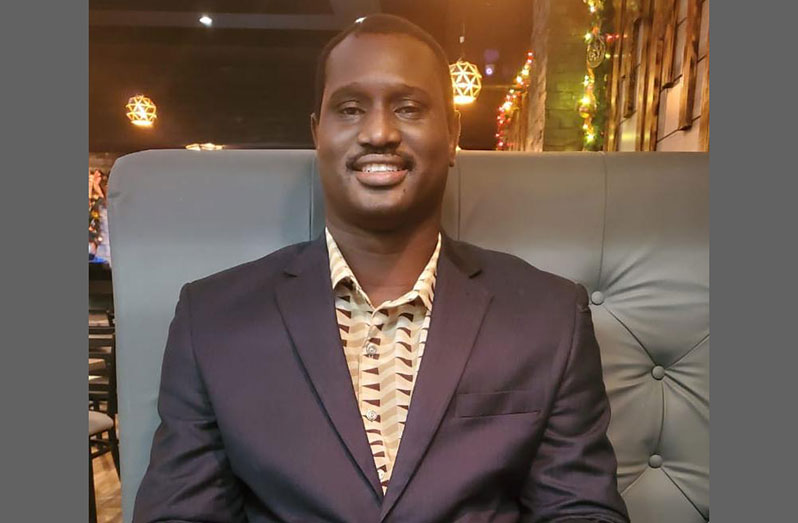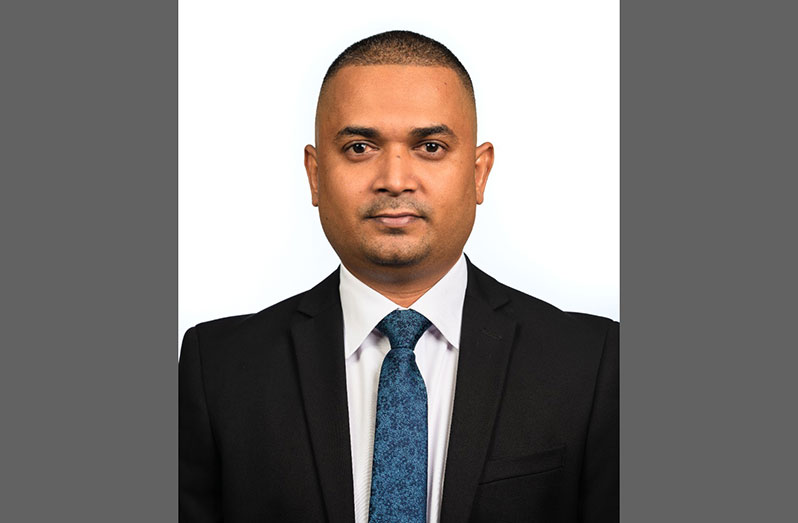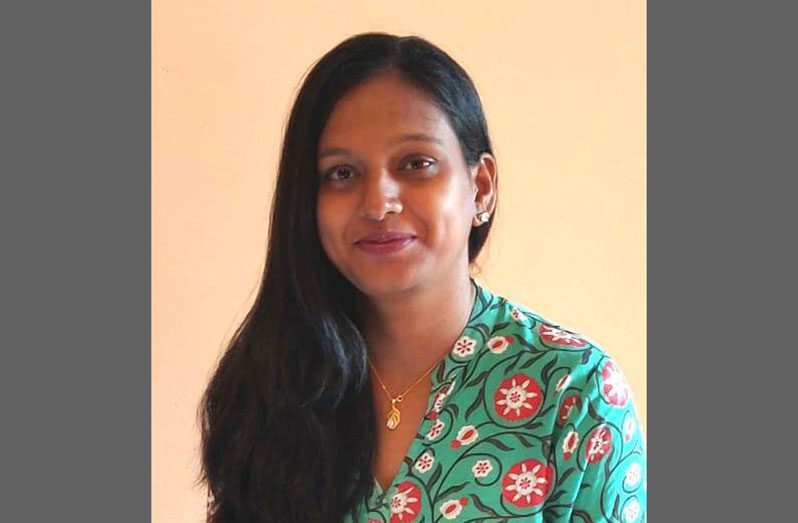– among tips shared for optimum mental health during COVID-19
JUST when we think that things are looking up and we’re finally going to get out of the Coronavirus pandemic, the number of infected persons starts to surge again. We expected an increase in the numbers, or another wave if you will in January due to increased mingling in the holiday season, but did we ever expect to hear 967 new cases (last Friday) reported over a 24-hour period?
Many who have dropped their guards when it comes to taking the precautions that they once diligently took are now conscientiously going back to doing those things because they perhaps realised that the pandemic isn’t going anywhere anytime soon.
But how long more must we be under siege by the pandemic? A ray of hope was presented when the vaccines started to be rolled out, with the Guyana Government being diligent about sourcing vaccines and achieving herd immunity. Yet, the country now has more active cases than ever before.
The back and forth of thinking that the pandemic will soon be over can be quite overwhelming and can put a strain on good mental health. At times, many are not even aware that the stress and fatigue that they’re experiencing are due to nothing more than the pandemic.
While many have resumed in-person work and school, others are still doing everything under the sun from the confines of their homes. Working from home, home-schooling children, and missing physical contact with family, friends, and colleagues can take a toll, especially on people with existing mental conditions.
According to a report by the Pan American Health Organisation (PAHO), depression continues to be the leading mental health disorder, and is twice as frequent in women as in men. 10% to 15% of women in industrialised countries and 20% to 40% of women in developing countries suffer from depression during pregnancy or the postpartum period. Mental and neurological disorders in the elderly, such as Alzheimer’s disease, other dementias, and depression, contribute significantly to the burden of non-communicable diseases.
The good news is that with the right effort put in, people can do specific things to improve their mental well-being during what is perhaps now the most uncertain and nerve-racking time.
Pepperpot Magazine spoke with Clinical Psychologist Anju Vivekanandaraj, from India, who has been working in Guyana over the past two years, offering counselling and psychotherapy services for various mental health issues such as depression, anxiety, Obsessive-compulsive disorder (OCD), psychosis and others. She also does relationship, adolescent and teenage counselling and works along with trauma and grief-related patients.
Anju has been seeing an increase in the number of persons reaching out for her services during the pandemic, and top on the list are healthcare workers, couples and adolescents. Chief among their concerns are increased stress, anxiety and depression.
Asked what she feels are some of the best measures to take toward maintaining good mental health, her number one piece of advice is to have a good support system. It can be anyone in life, but there must be people you can surround yourself with to fight challenges with guidance, support, and confidence. This would necessitate strengthening the bonds of established relationships. “When you have good relationships, you can benefit from emotional support and comfort from the people you love and trust, and if you’re in a toxic relationship, it’s important to get out of it and get professional help.”
The next important thing would be to have a daily routine or schedule. This presents a feeling of safety and normalcy, and when you can finish tasks, it makes for a more fulfilling feeling, along with a sense of achievement and motivation.
Further, physical health is always related to mental health, so focus should be placed on diet and exercise. “It doesn’t mean that you have to do any strenuous activity, but it can mean simply going for a walk in the evening around the block,” Anju pointed out, as she noted the need for having quality sleep too.
Taking a mindful approach to things can also contribute to good mental health, because it means that you would need to purposefully pay attention to the things that are happening in the moment. “Pay attention to your thoughts, emotions, and feelings. This will help you to stay grounded in the present rather than staying in the past or worrying about the future.”
Practising gratitude also has an important role to play. “We need to be grateful for the small things. Many have been experiencing the death of loved ones, so if we have happy moments with our family, that’s something to be thankful for. It’s Important to sit back and reflect on all the good things that we have,” Anju shared.
Last, but by no means any less important, would be doing something for yourself every now and again. Learn to take a break, especially if you are the sort of person who constantly looks out for the interests of others. At times, being consumed with their problems can be quite overwhelming. “It can be just going and having something in a restaurant or going to the spa. Think of what really makes you happy and feel good. Maybe just being at home and reading a book, or watching a movie by yourself,” Anju suggested.
Children are not to be left out of the picture as they too have to deal with a lot. It is important to understand if they are also stressed out by the limitations placed on them when it comes to physical activity outdoor or going to school to be with their friends. “Be conscious of what they’re doing and how they’re spending their time at home. Rather than them always being on a computer or phone, monitor their behaviours. Are they getting more irritated or frustrated? Are their grades dropping? Plan an outing with them and take them outside for physical activity as much as possible. This can boost their mental health,” Anju advises.
From the people
To get a view of how others may be coping at this difficult time, the Pepperpot Magazine spoke with a few more persons to hear what measures they’ve been taking to deal with the overwhelming effects of the pandemic.

Anand Persaud, Newspaper Editor:
It was important not to be under siege and in fear of the virus. After all, there was a high rate of recovery among the infected. So I had prepared myself for the eventuality that I could become infected. Still, my mindset was that I would overcome it and get back to normalcy. It was also important to take preventative steps to ward off COVID. For example, diet and exercise supercharge the immune system and reduce stress. Just as important was the acceptance that upon the availability of the COVID vaccine here, I would take the recommended doses. When the vaccine became available to my category, I took the Sputnik V in April and May of 2021 without any hesitation as I was confident in the science, and I firmly believe that they provided protection. I have since had a third shot – Johnson and Johnson and would be prepared for a fourth dose was it recommended. This type of positive outlook while taking sensible measures has definitely helped many people through this period and there is still some way to go.

Adrian Peters, Economics/Maths Teacher
Currently, I am at school Monday to Friday. However, from September to November 2020 and September to October 2021, I had to engage my students virtually. That was a challenge since attendance was poor for the most part. Also, not all students had a stable or suitable internet connection. So, mentally, it was discouraging. Apart from a spiritual routine, I did practical things to maintain a positive mindset. I focused on what I could do and not on the circumstances beyond my control. I reminded myself of why I was putting forth the effort to teach online; it was in the best interests of my students.

Avenash Ramzan, Sports Journalist/News Anchor
At first, it seemed like living in a prison, being controlled by an unseen and rampant force. One of the challenges that came with the pandemic was getting my son to suddenly shift from face-to-face to online classes, while also keeping his mental health intact. Thankfully, engaging in sport at home allowed him to maintain that balance. COVID-19 restrictions on sports activities since literally brought local sport to a standstill, forcing Sport Journalists to come up with creative ways of keeping readers/viewers engaged. Of course, there are days when none of the ideas come to fruition, and that is when the frustration would step in. As media operatives, we have an obligation to the public, and it’s about digging deep to keep the public engaged. It is on those days you would have to ‘mask’ the confusion and frustration and put on your game face. During the initial period working at home, I decided to engage in physical exercise. This helped me to not only get in shape but also offered a meaningful avenue of utilising my spare time. Secondly, the pandemic helped me to spend more quality time with the family. Those engagements really put life into perspective and served to strengthen the family bond. Persons struggling with mental health issues should cultivate optimism as a pessimistic outlook would only serve to worsen the situation. It is important also to speak about the issues affecting you to someone you trust and to maintain a balance of work and leisure/personal time.

Holly-Anne Bristol, Disability Community
My mental health was negatively affected due to the isolation I experienced. It was not easy not being able to physically socialise with my friends and other loved ones. To combat the negative effects, I emerged myself into online learning, meeting and forming relationships with the disability community, and using all the resources available to me like Zoom, WhatsApp and Facebook. I also practised a lot of self-care, like getting enough exercise and sunlight, eating balanced meals, connecting with my family for emotional support and learning a few new skills. I also went back to doing things I liked but was too busy to do before COVID-19.

Soma Singh, Counsellor
Apart from working at the Georgetown Public Hospital in the Quality Improvement Department, I am the Vice President and Counsellor within the Guyana Professional Counseling Association and Psychotherapy foundation (GPCAP). The foundation has a hotline number, and I work with about four cases per month. I am constantly worried about my elderly mom and seven-year-old daughter contracting COVID. Sometimes, I have to deal with my own fears and yet be focused when counselling someone. There have been days when I would also feel depressed but still need to attend to a client. As a budding psychologist, we are taught to ensure our emotions are in check before we attend to some else’s. I have learnt to identify what I am feeling and give myself space if the need be. I love cooking, so this is therapeutic for me. I dedicate my weekends to my daughter. This is calming because she’s a joy to be around. I also try to have positive thoughts.




.png)









